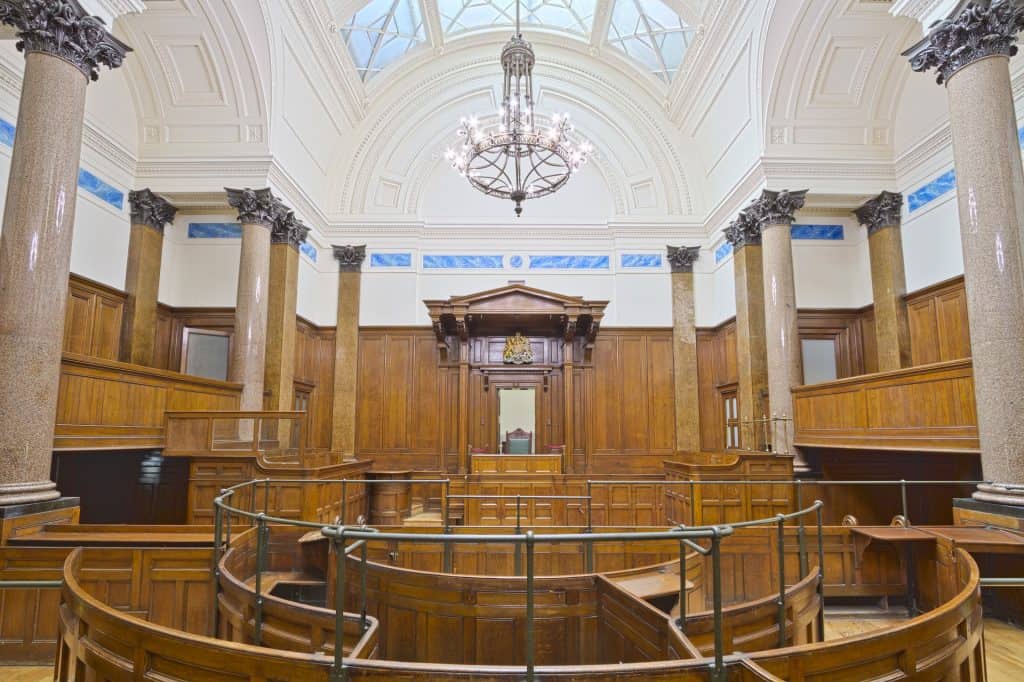When we imagine a criminal case, we think about a courtroom appearance and either a jury or judge reading the final verdict, but did you know that more than 90% of state and federal criminal convictions are the result of a guilty plea?
In any case in which a criminal defense lawyer does not believe it is possible to get the charges dismissed completely, or if getting the charges dismissed is impossible (such as strong evidence against the defendant) a plea deal will likely be discussed.
This discussion can be opened by either the prosecution or the defense and is a way to reach a resolution to the case faster, as well as giving the defendant a chance to have an element of “control” over the outcome of their criminal case.
What are the 3 Types of Plea Bargains?
There are 3 types of plea bargains, but only two are used commonly. These are:
- Fact Bargaining: this is the least common type of plea bargain. This is where the defense agrees to specific facts about the case in exchange for the prosecution leaving other facts out at the trial. This plea bargain does not avoid going to trial, so it is still based on guessing how the judge or jury will react to the information presented to them.
- Charge Bargaining: this is a common type of plea bargain where the defense agrees to a guilty verdict but by doing so has their charge reduced, and so receives a lesser punishment.
- Sentence Bargaining: this is similar to charge bargaining, but instead of having the charge reduced it involves pleading guilty in return for a reduced sentence.
Why are So Many Cases Plea Bargained?
The main reason why so many cases are settled via a plea bargain is because it saves time and money on going to trial. A criminal trial can take months, or even years, if the case is complex enough. For all that time there are legal fees to pay, both the accused, the victim(s), and their families have to live in a state of limbo, and that may mean the alleged offender is sitting in a jail cell.
Besides the reasons why it’s (often) to everyone’s benefit to have a speedy case, another reason to negotiate a plea deal is just that – you can negotiate. This gives both sides an opportunity to control the outcome and come to an agreement both sides are satisfied with. When a case goes to trial everything is unknown, so a plea deal has the benefit of knowing exactly what you’re agreeing to and what the outcome will be.
Are Plea Bargains Fair? Should Victims Have a Say?
Whether or not a plea bargain is fair to all involved is down to the individual case. It can be argued that a plea deal that is pressed upon someone who was truly innocent of a crime, or one that reduces charges so significantly that the victims and their hardships due to the crime aren’t respected, then no, they’re not.
However, more victim advocacy groups are starting to be involved in the plea bargain process, so they may be more “fair” toward victims and their families in the future. For now, there will be cases where the plea bargain is “fair”, and cases where they “aren’t fair”.
What’s the Downside of a Plea Bargain?
Some of the downsides to plea bargaining is:
- Both sides lose their right to a trial by jury
- It will create a criminal record
- A judge can void the agreement and impose a different sentence (or no sentence at all)
- There is no chance of an appeal
- The outcome can be seen as unfair
Why Would a Prosecutor Offer a Plea Bargain?
Volume of Cases
One of the primary reasons why prosecutors offer plea bargains is because both they and the judge have very little time and a lot of cases to try. Judges will often put pressure on prosecutors to move the cases through more quickly, and so prosecutors look to plea bargains as a way to remove cases from the calendar that can reach a solution without going to trial.
Assures a Conviction
Perhaps the most common reason why a prosecutor would offer a plea bargain is to assure a conviction. All plea bargains should – in almost all cases – end in a conviction. While that conviction may be a lesser one that may be served if the case went to trial, it is a conviction nonetheless, and there is always the risk of an innocent or not guilty verdict if a conviction is not agreed to in a plea bargain.
Protect Informants and Victims
If the arrest was the result of an informant, they will try to reach a plea deal so no informant or witness has to testify at a trial, or reveal that informant’s criminal history at trial. If an informant has a criminal history they may be impeached at the trial, and the prosecution wants to avoid that so that informant can continue to help them stop criminal activity.
Going to trial can be particularly stressful for victims and witnesses, so a plea deal will allow the prosecution from putting additional stress and pressure on victims. While, in many cases, victims want to see the perpetrator get the maximum punishment for their crime, some prefer to balance a desire to move on with the knowledge that the perpetrator will be found guilty.
Should I Take a Plea Bargain?
Whether or not you should take a plea bargain depends on your case and the advice you receive from your defense council. This is why it’s important to have a criminal defense lawyer who will fight for your freedom, and not simply use a defender who has been assigned to you by the state. While public defenders will endeavor to do their best, they are often overworked and have the same interests as the prosecution and judges in wanting to settle cases as fast as possible.
In order to have a truly unbiased defense, you need to hire a criminal defense lawyer who will advise you and negotiate the very best circumstances for you, not just the circumstances that will get the case off their plate as soon as possible.
If you’ve recently been charged with a crime in the St. Louis Metro area, we’re here to help. Simply click here to contact us for your free consultation and we’ll get back to you as soon as possible to discuss your case.







